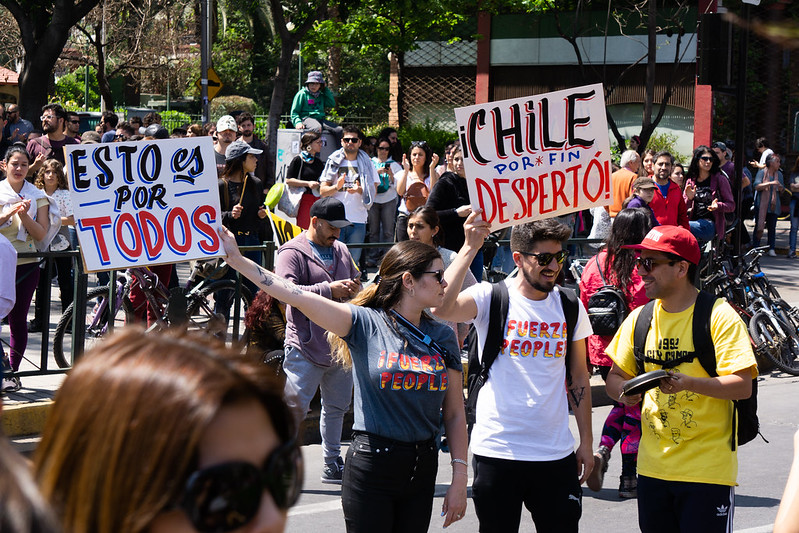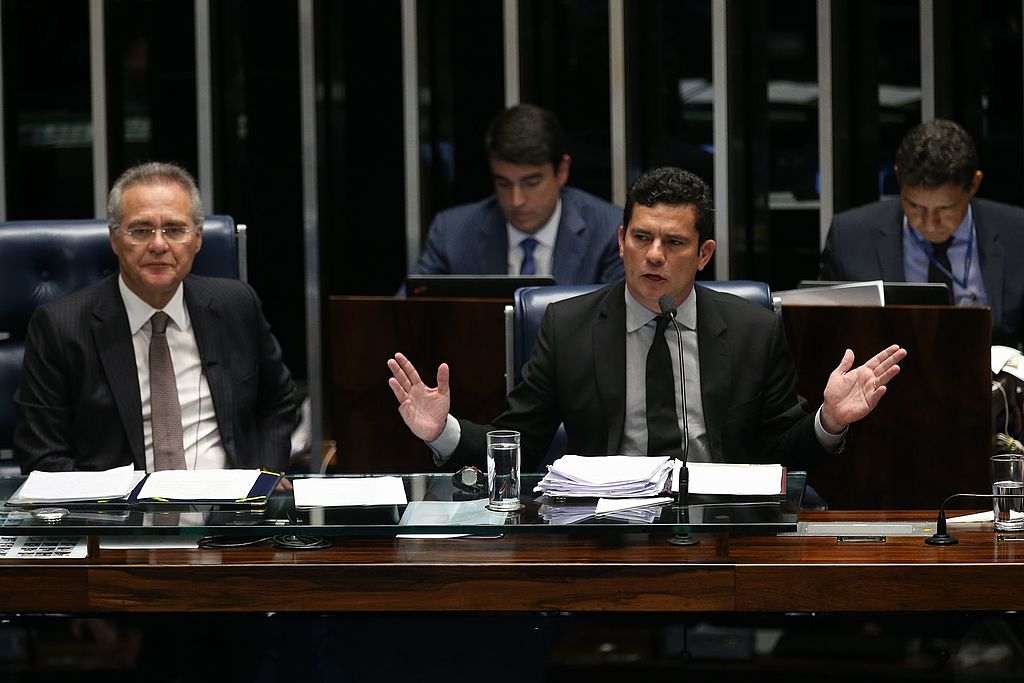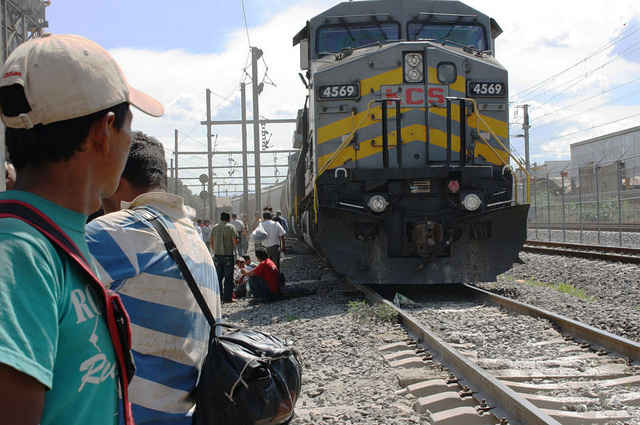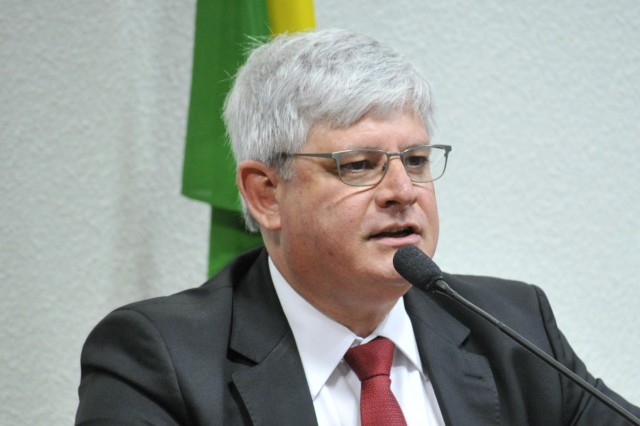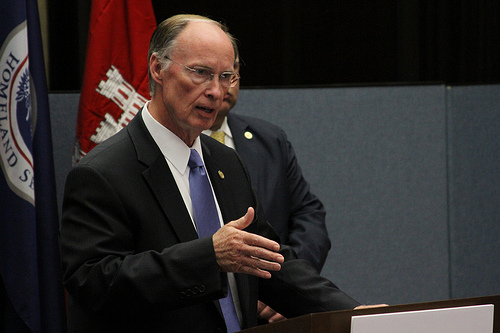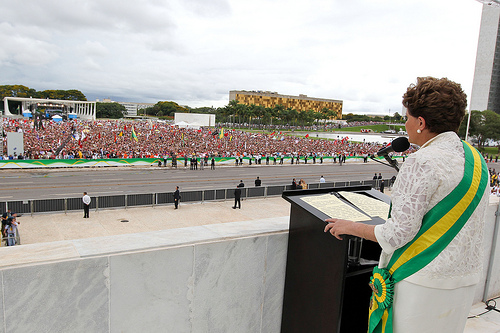
Latin America: Week in Review, Peru
Peru’s Humala Visits Brazil To Meet With Rousseff; Looks To Distance Himself From Chávez
June 10, 2011 By Staff
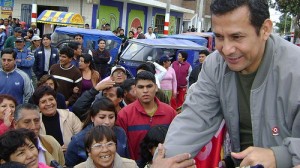
Peruvian President-Elect Ollanta Humala. Image courtesy of the Partido Nacionalista Peruano.
Today in Latin America
Top Story — Peru’s president-elect Ollanta Humala made a visit to Brazil Thursday, where he met with President Dilma Rousseff, as part of his South American tour visiting several heads of state to foster regional unity.
During his visit, Humala praised Brazil’s economic success and said that he wanted to learn more about the country’s social welfare programs. The two leaders discussed Brazil’s public assistance and education programs, which have helped pull millions from poverty in recent years.
“Brazil is a successful model that combined economic growth and social mobility,” Humala said following his meeting with Rousseff.
Humala and Rousseff also discussed securing the two countries mutual borders in the Amazon in an effort to curb drug-trafficking.
By choosing Brazil as his first trip abroad as president-elect, Humala seems to be siding closer with the moderate leftist governments of the region and shying even more away from supporting more radical left-wing leaders like Venezuelan President Hugo Chávez. Humala lost his previous presidential run in 2006 to Alan García in part because he was seen as favoring the Venezuelan leader.
During this year’s election, Humala attempted to cast himself more in the mold of former Brazilian President Luiz Inácio Lula da Silva, by championing ideas like social programs and stable fiscal and monetary policies helped make Brazil an emerging market favorite.
Some Peruvians and economists worry though that Humala might use the country’s large amounts of mineral wealth -copper, silver, zinc and gold- to shift the country toward a less-democratic and more socialist oriented economy like Venezuela has with its vast oil supplies.
“We hope he will follow not the Chávez path but the one set by moderate Latin American leftists such as former Brazilian President Luiz Inácio Lula da Silva, who was able to lift millions of Brazilians out of poverty by supporting business while increasing social spending,” wrote the editors of Bloomberg, adding that the world will get its first glimpse of Humala’s policies when he names his economic team.
If his current trip is any indication of which path Humala will take it appears that he is moving more toward the Brazilian model. He meets Friday with Lula and Venezuela is not on the list of stops for his trip, which does include Paraguay, Uruguay, Argentina and Chile.
Just Published at the Latin America News Dispatch
- New York politicians and immigration activists rallied on the steps of New York City Hall to try and save the Immigrant Opportunities Initiative. Staff Writer Mari Hayman reported from the scene.
- Contributing photographer John Sevigny left Mexico after a terrifying night of gunfire and grenades in Saltillo. Read his personal account here.
Headlines from the Western Hemisphere
North America
- Alabama’s governor signed Thursday a piece of strict immigration legislation that requires police to check the status of anyone they suspect may be in the country illegally when stopped for another reason.
- 21 bodies with notes attached them were found in the streets just outside the western Mexican city of Morelia, but prosecutors did not release the contents of the notes.
- Adrian became the first hurricane of the 2011 season as it picked up strength off the Pacific coast of Mexico.
Caribbean
- Jailed U.S. contractor Alan Gross, serving a 15-year sentence for crimes against the Cuban state, is in good spirits, but is anxious to go home, a member of a U.S. delegation said after visiting him on Thursday.
- Activists are demanding that a series of killings of gays, lesbians and transgenders in Puerto Rico be treated as possible hate crimes, saying there is an alarming rate of violence against these groups on the U.S. island.
Central America
- A former Costa Rican vice-president and current senior fellow at the Brookings Institution Kevin Casas-Zamora said that Central American elites need to pay the bill for security forces in their home countries.
- Guatemalan security forces arrested Thursday a former national police chief wanted for the disappearance of a student union leader during the country’s civil war.
- Journalist and radio host Nelson Hernández was stabbed to death in western El Salvador, police and associates of the victim said Thursday.
- Costa Rican foreign minister René Castro welcomed the help of the United Kingdom in the search for a missing British journalist.
- Nicaragua and Honduras agreed to restore trade ties, which has decreased significantly after Honduras’ military coup in June of 2009.
Andes
- Colombia’s Congress on Thursday passed a key reform to spread billions of dollars in oil and mining royalties more evenly across Latin America’s no. 4 crude producer as it seeks to hike exports of oil, coal and metals.
- Former shareholders of an Ecuadorean cellular-telephone company are contractually barred from bringing a $900 million suit against Mexican telecommunications company America Móvil SAB, New York state’s top court ruled on Tuesday.
- Four foreigners, including three Chinese oil workers, were kidnapped by suspected members of the FARC guerrilla group in Caquetá, a province in southern Colombia, police said.
- Luis Freddy Lala Pomavilla, one of the two survivors of a massacre last summer in Mexico, and his family are once again receiving police protection, the Ecuadorian Attorney General’s Office said.
Southern Cone
- Three major airlines cancelled flights out of Buenos Aires due to the lingering ash cloud caused by Sunday’s volcanic eruption in neighboring Chile, where more than 4,000 people have fled their homes.
- Brazilian President Dilma Rousseff’s liaison with Congress, Luiz Sergio, is expected to resign on Friday, becoming the second Cabinet member to step down in a week.
- International Olympic Committee officials concluded a three-day visit to Brazil, reporting that the country is making “remarkable” progress for the 2016 Olympic Games after criticism for a slow start and concerns about the displacement of Rio’s poorer residents.
